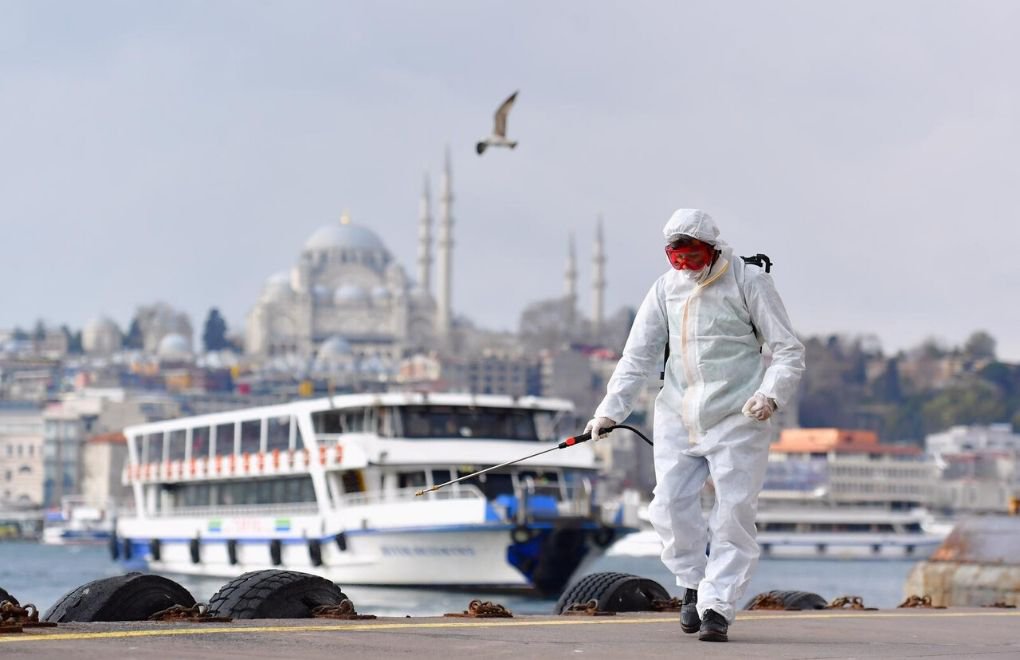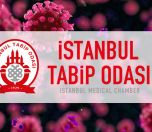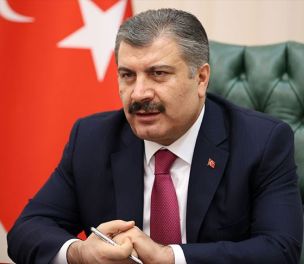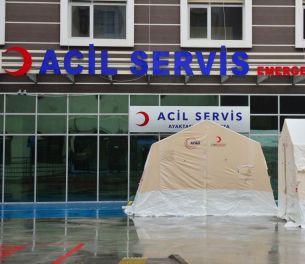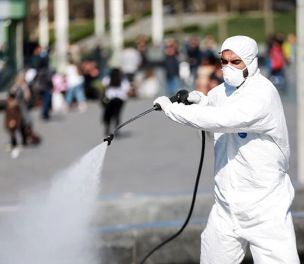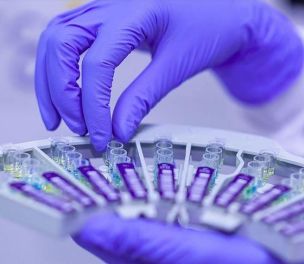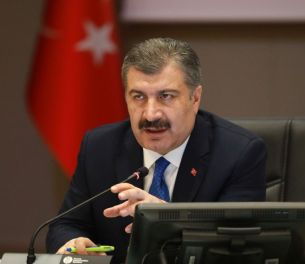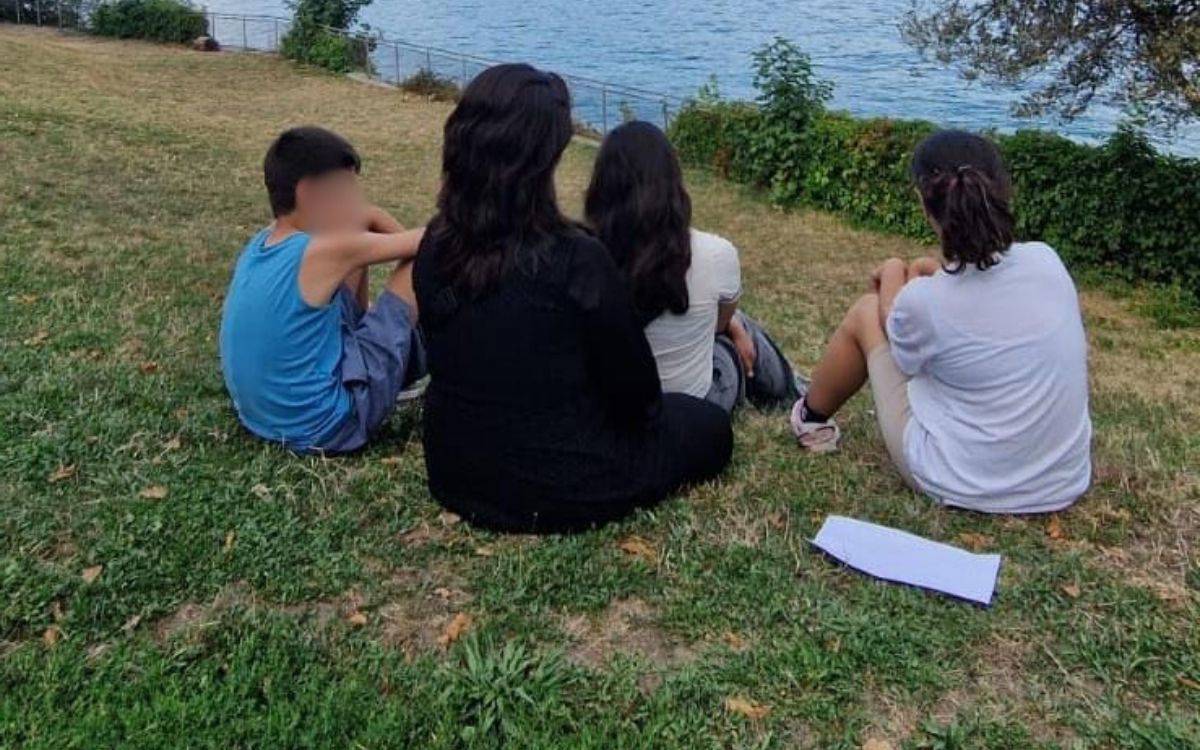* Photo: Anadolu Agency (AA) - Archive
Click to read the article in Turkish
The first novel coronavirus (COVID-19) case was confirmed in Turkey on March 11, 2020. Since then, social isolation calls have been made.
According to the latest figures announced by the Ministry of Health yesterday (April 7), 228,868 tests have been conducted so far. While the total number of cases is 34,109, 725 people have died of the virus.
CLICK - Turkey's Covid-19 Death Toll Surpasses 700
Specialized in neuroscience and genetics, Assoc. Prof. Çağhan Kızıl from Dresden University Faculty of Medicine has answered the questions of bianet regarding coronavirus outbreak in a video-interview.
Some highlights from the interview are as follows:
What do the latest figures tell us?
The graphics prepared since the first case was announced on March 11 show us that Turkey is at the very forefront of the world in terms of the outbreak's rate of increase. It has not changed. If necessary measures are not taken, this outbreak will continue to spread recklessly. It is apparent that this rate of increase will continue every day when measures are not taken.
Do you think that the measures taken by Turkey against the pandemic are adequate?
Since the beginning of January, all types of measures have been taken against the pandemic around the world such as isolation, closures, etc. However, they are not fully implemented in Turkey.
I mean, isolation cannot be done by saying people under a certain age can go out while those over a certain age should stay home. We can slow down the pace of a disease that spreads from person to person only by reducing human contact. That is what was done in China. We see the differences between the countries where it was done and it was not done.
The number of tests is increasing in Turkey, it is a positive development. However, since we cannot test everyone, the current figures that we see are only a snapshot of the real picture.
Is this process handled like a crisis management in Turkey?
No. That is what I am trying to tell. The process of a pandemic needs to be the part of a crisis management. But, it is not the case.
Projections have been prepared in several countries of the world since January. As the data are not transparent in Turkey, we do not know if there are such projections or not. Politicians told the truth in several countries.
It was not said, "Nothing will happen to us, it will not affect us." In societies where scientists are in majority, what needs to be done is put into practice. A common sense is created instead of persuading political leaders.
Tests were done, cases were monitored. Workers were given special leaves so that they could stay home. We cannot talk about it in Turkey.
Science says, "Reduce social life." It says that we must do it to full extent. However, we cannot see it in Turkey. Superstitions are spreading among the public and we see them in every segment of the society, including politicians.
There is a distorted crisis management in Turkey. It is neither the right thing to do nor what needs to be implemented. I see that different decisions are taken and different preferences are made with different motives.
Do you think that the decisions taken in Turkey are scientific or based on scientific data? Or, are they more economically motivated?
In all of the statements made about the issue, we see economic concerns. It is, of course, natural. It is also the case in the world. Every country naturally has economic concerns. However, the level of this concern and whether it will be put ahead of human life determine the stance of countries.
There is, of course, an economic concern in Germany and the US. But, such measures as increasing herd immunity is not even thought about any longer. Because in one way or another, it is a very large-scale outbreak and it will ultimately affect the economy and people's lives.
What science says is "Reduce social life as much as possible and it must be done at the maximum level." I mean, saying "Let a certain age group go out and restrict others..." It is not done any longer. Because science does not say that. It could perhaps be done in the early stages but the pandemic has spread to the whole world now.
Therefore, what science says is not done in Turkey. Unfortunately, it seems to me that Turkey is not taking scientific decisions.
What would you like to say as a last word?
We are going through a period when people suffer a lot. So, I want them to listen to reliable scientists and not believe everything they hear. We need to listen to all statements carefully and act based on scientific knowledge.
About Çağhan KızılNeuroscientist and geneticist, who is leading a Helmholtz research group in German Center for Neurodegenerative Diseases within Helmholtz Association and in Center for Molecular and Cellular Bioengineering (CMCB) at the TU Dresden. His research culminates interdisciplinary approaches harboring genetics, neuroscience, cell biology, neuroimmunology, biotechnology and drug development. His team focuses on learning from Zebrafish how to enable the adult brain to better cope with neurodegenerative diseases and regenerate. He is also developing innovative tools for comparative studies in mammalian brains such as 3D human brain models in laboratory environment, aiming to generate novel in vitro platforms for drug development. He established his lab after receiving Helmholtz Young investigator award in 2013. In 2019, he became the first to receive a tenured professorship in DZNE Dresden within the Helmholtz Association. Completing his BA studies at the Department of Molecular Biology and Genetics at the Middle East Technical University (METU) in Ankara, he did his PHD at the Max Planck Institute in Germany. |
(EMK/SD)





